TMJ refers to the temporomandibular joint, more commonly known as the jaw joint. It is situated frontal to the ear and attaches the lower jaw (mandible) to the skull. Many Americans are affected with TMB or temporomandibular disorder and is often caused by stress. Stress prompts an individual to unknowingly clench their jaw and teeth together at night. Cartilage is broken down from the pressure caused by the clenching. The joint and facial muscles become overstimulated and affect the opening and closing of the mouth. Symptoms of TMD include headaches, receding gums, pain followed cracking sounds when he/she opens their mouth. TMB can be easily treated by wearing a night guard while you sleep. The night guard keeps you from placing immoderate pressure on their TMJ.
Signs and Symptoms
- Sore or tight muscles of mastication (muscles used to chew)
- Frequent headaches
- Jaw locking, both open or closed
- Clicking or popping of joint when opening or closing mouth
- Limited opening of mouth
- Pain while chewing
TMJ Exam
- Thorough history
- Palpate muscles of mastication (chewing muscles)
- Palpate joint (check for clicking, popping, grating)
- Joint Loading test
- MRI
We routinely check for TMJ with each check-up exam. We perform a comprehensive TMJ examination on clients who suffer from the TMD symptoms listed above.
Treatment
Treatment is determined on a case-by-case basis as each individual is different, but will likely include one or more of the following:
- Occlusal Splint
- Occlusal equilibration (adjusting bite) after a comprehensive occlusal examination
- Medications
- Physical therapy
- Surgery
